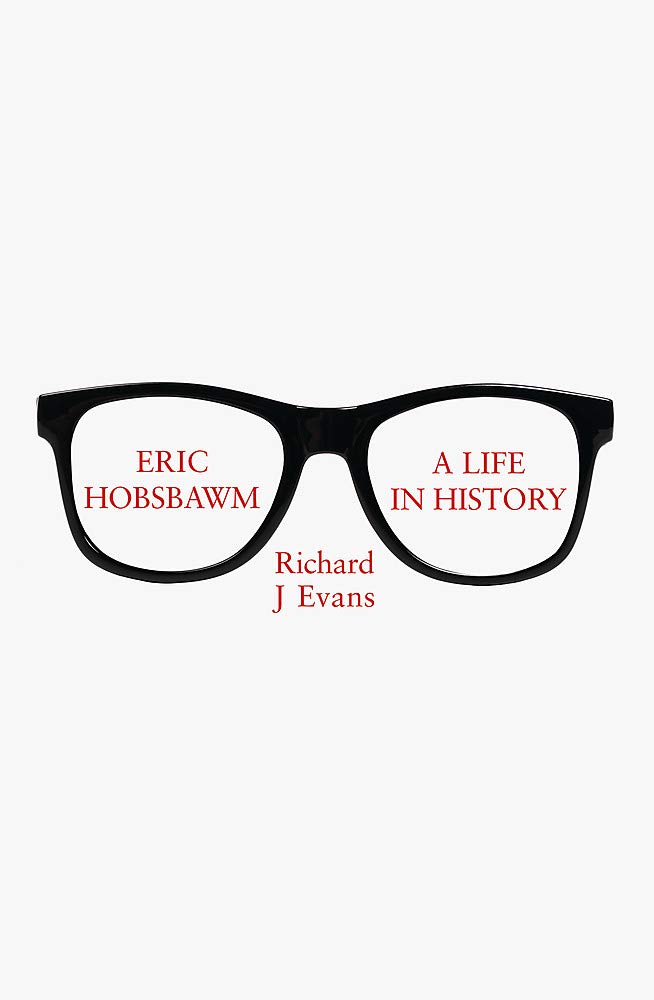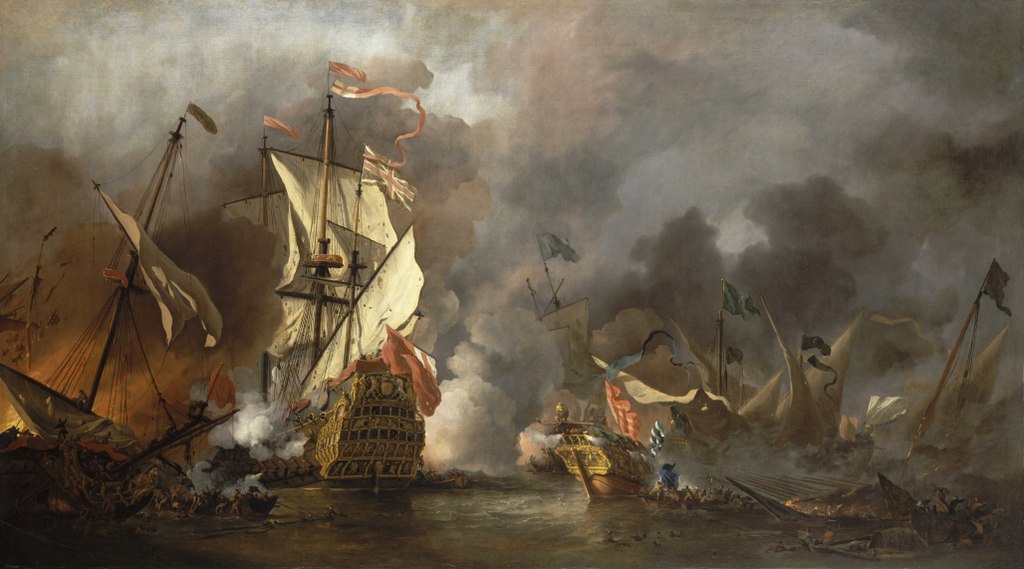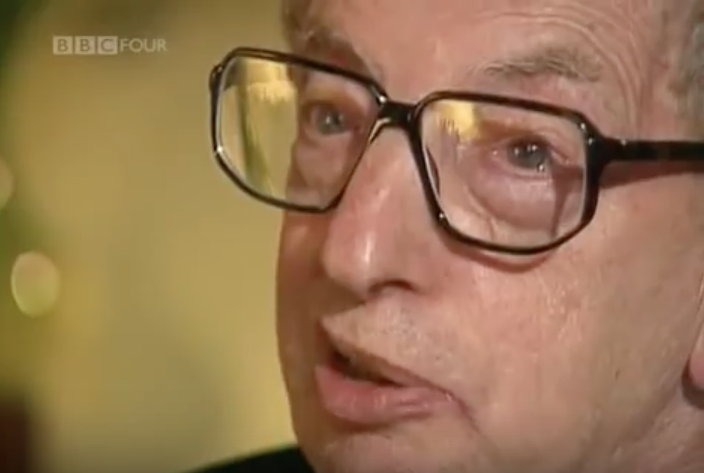The writer’s global appeal will remain something for the history books, writes Pepe Escobar.
 We all lose by not having Eric Hobsbawm absorb the geopolitical dementia of the early 21st century to later refine it in sharp, crisp historical analysis.
We all lose by not having Eric Hobsbawm absorb the geopolitical dementia of the early 21st century to later refine it in sharp, crisp historical analysis.
A new, exhaustive biography, “Eric Hobsbawm: A Life in History,“ by his former student and Regius Professor of history emeritus at Cambridge, Richard Evans – out now in the U.K. and in the U.S. in April – allows us to evaluate the extent of our loss.
It all starts with – what else – an undying love of good books: “In the end, one doesn’t just read them, one lives with them. That’s civilization.” That’s so apt coming from someone who in 1940, during the war, read “100 pages of Stendhal on the back of a lorry – a gesture of civilization.”
At the time “the English boy” born in Alexandria, Egypt in June 1917, was not contemplating the idea of becoming a professional historian. He’d rather write “proletarian literature.” During a stressful – historical – juncture when Hitler announced he expected to take up residence in London within a fortnight, Hobsbawm was already determined that “I want to write so that everyone recognizes the houses and streets, smells the flowers, feels the passions.” In the end, he somehow achieved his dream – to be a historian.
Readers in five continents know that Hobsbawm always defined himself as a Marxist. It says a lot about British intelligence that MI5 spent a lot of time and energy tracking Hobsbawm while totally bypassing the “Cambridge Five” who were merrily passing secrets to the USSR – Blunt, Burgess, Cairncross, MacLean and Philby – all of them, unlike Hobsbawm, Brit establishment to the core.
The book details delightful personal vignettes, such as this of Hobsbawm in Paris in the early 1950s, “observing the passing scene from the approved cafes such as the Flore or the Rhumerie” and mingling with, among others, Lucien Goldmann, Roland Barthes and Edgar Morin, the great Henri Cartier-Bresson, going to jazz clubs, and interacting with intellectuals who were either unorthodox Marxists or drifting away from Marxism for good. He got to know Jean-Paul Sartre quite well – sharing the odd mutton curry at La Coupole.
At the time both the French and the British Communist Party were hardcore Stalinist, totally unlike Hobsbawm. No wonder the party in Paris never invited him to any meetings. Hobsbawm was a consummate political pragmatist. He may have been a communist, of course, but never sectarian. His loyalty, above all, was to the broad cause of socialism. As Evans stresses, “he believed consistently in the unity of the Left, not in any kind of Marxist sectarianism.”
All That Jazz
The official “Made in the U.S.S.R.” party line on jazz was extremely negative during the Stalinist era. Then, rehabilitation ensued. By 1962 jazz was all the rage, for instance, in Czechoslovakia. That’s when jazz – and especially the blues – started to be sold across the “real socialism” sphere as the music of the oppressed black working class in capitalist America.
Enter Hobsbawm as jazz critic of the New Statesman, under the pseudonym Francis Newton. At the time, late 1950s to early 1960s, journalism was despised by British academia. Swinging from jazz clubs and concerts to the quasi-mythical hipster hangout, the Downbeat Club in Old Compton Street in Soho, Hobsbawm pulled it off as a cultural reporter instead of music critic. Many in academia were oblivious to his alter ego.
 Hobsbawm ’s jazz criticism is fascinating in itself. He was attracted by the cerebral classicism of the modern jazz quartet, rejecting “the old, full-blooded, spontaneous jazz … because it reminds them of oppression, illiteracy, of Negroes clowning to wheedle crumbs from the whites.”
Hobsbawm ’s jazz criticism is fascinating in itself. He was attracted by the cerebral classicism of the modern jazz quartet, rejecting “the old, full-blooded, spontaneous jazz … because it reminds them of oppression, illiteracy, of Negroes clowning to wheedle crumbs from the whites.”
He didn’t get Miles Davis – “surprisingly narrow technical and emotional range” – or Thelonius Monk – “neither the technical mastery nor the staying power” of Duke Ellington. On the other hand, he found Ornette Coleman “unforgettable.” He would always display a positively gloomy vision of mass-produced pop. Hobsbawm was a marvelous interviewee. I wish I could have asked him back in the 1980s what he thought of David Bowie.
Evans does full justice to the importance of the “Age” trilogy.
‘The Age of Revolution,” following European history from 1789 to 1848, made a splash with its formidable thesis tracing the simultaneous impact of the “dual revolution,” the French political and ideological and the British industrial; essentially, the foundation of the modern world.
The concept of “dual revolution” would become seminal in every historical writing and teaching of the past half-century. No one before Hobsbawm had shown that the Industrial Revolution was due to Britannia ruling the waves, which enabled it to create a virtual monopoly of cotton exports to India and Latin America.

Painting by Willem van de Velde the Younger of English ship, at left, battling Barbary vessels, 1686. (Wikimedia)
He also definitely showed how the French bourgeoisie, as a “coherent social group,” drove political change “when the French monarchy, mired in deep financial crisis following the War of Independence in the U.S., lost the support of the feudal aristocracy.”
By the time ‘The Age of Capital” was out, in the mid-1970s, Hobsbawm had clinched a triple treat; academic recognition, vast commercial success, full respect and recognition by the British establishment.
“The Age of Empire,” chronicling the “long 19th century” from 1789 to 1914, unveiled a magnificent concept also essential to any future historical scholarship. Arguably the best summary ever of Hobsbawm’s prodigious gifts was offered in a review by Perry Anderson:
“…economy of synthesis; vividness of detail; global scope, yet acute sense of regional difference; polymathic fluency, equally at ease with crops and stock markets, nations and classes, statesmen and peasants, sciences and arts; breadth of sympathies for disparate social agents; power of analytic narrative; and not least a style of remarkable clarity and energy, whose signature is the sudden bolt of metaphoric electricity across the even surface of cool, pungent argument.”
The Universalist Project
Hobsbawm instinctively knew already in 1989 what would happen after the collapse of the U.S.S.R. At a conference in Sweden, as recalled by French historian Patrick Fridenson, he prophesized: “With the Soviet Union you have had peace; you are going to have war.”
Later on, in 1990, he would write: “The fall of the Soviet-type system, about which all illusion had long gone, is less significant than the apparent end of the dream of which it was the nightmare version.”
No wonder Hobsbawm was a critic of nationalism and identity politics. He always stressed, “the political project of the left is universalist.” Nations were no more than artificial constructs – see, for instance, the British empire arbitrarily demarcating the borders of Afghanistan and Iraq, among others.
Hobsbawm’s “Age of Extremes” turned him into a global superstar. But there are flaws. Essentially, the point of view is centered on Vienna, Berlin and London. There is no comprehensive analysis of the ascension of the American bourgeoisie, or the turbulence across East Asia. The book actually revolves around the history of the decline of a Western civilization that totally betrayed the 19th-century promise of cultural and material flowering.
At dinner parties, Hobsbawm eschewed small talk and behaved as a true political party animal. He wanted to cut to the chase right away. As his editor at Penguin, Stuart Proffitt, recalled: “The quality of his information from around the world, in extreme old age – this must have been when he was 93, 94, something like that – but he knew exactly what was going on all over the world. I mean, he was like a sort of one-man Economist Intelligence Unit. It was really, really extraordinary.”
Hobsbawm the Brazilian
Hobsbawm may have become widely respected in the U.S., due to his academic stints, and in India, but in Brazil he became larger-than-life. His books sold almost a million copies. He was essential in shaping the political thinking of two former presidents, Cardoso and Lula.
In 1975, during the military dictatorship, he was invited to the first major conference featuring leftist intellectuals such as Arno Mayer from Princeton and Juan Linz from Yale. Talking fluently about Brazilian peasant millenarian movements, he had the guts to declare he was a Marxist historian, planting a seed that would engender the end of the military dictatorship in the following decade.
It’s impossible to understand where Eric Hobsbawm was coming from without the essential background provided by Evans. Hobsbawm became acquainted with Marxist theory and an ideal of communism in the early 1930s, when the Communist Party seemed to many young people of his generation to embody the only possible hope of defeating Nazism and building a better world.
So this spectacle of a great mass movement sharing common ideals forged in Hobsbawm a lifelong, visceral emotional sense of belonging, healing the scars in his shattered family life. Evans sums it all up: “This feeling lasted, buried deep in his soul, for the rest of his life.”
And that’s how we should also understand his passion for jazz – the search for a community that provided some sort of emotional equivalent of a family.
Hobsbawm never followed the party line. Only intellectual amoebas could possibly accuse him of being a Stalinist. He did, consciously, remain part of a global network of fellow leftist intellectuals for the rest of his life. In a nutshell, he was a crossover Marxist, an absolutely unique, polyphonic, intellectual mix shaped by myriad influences.
And the greatest thing is that he was, above all, one helluva writer. It was literature that guided him to history. And that’s why, ashes to ashes, his global appeal will remain something for the history books.
Pepe Escobar, a veteran Brazilian journalist, is the correspondent-at-large for Hong Kong-based Asia Times. His latest book is “2030.” Follow him on Facebook.



He had his limitations. In one of his books, I forget which one, he dismisses the death toll of the Congo Free Star as tiny compared to what totalitarian rulers would do in the 20th century. This is false. King Leopold’s estimated death toll is in the same range as Stalin’s.
I don’t know how he made such a mistake. Hannah Arendt had it right, so he has no good excuse.
Congo Free State, not Free Star. Somehow autocorrect kicked in there.
And I am not dismissing Hobsbawm, just pointing out his limitations.
“Blunt, Burgess, Cairncross, MacLean and Philby – all of them, unlike Hobsbawm, Brit establishment to the core. ..”
Which, it needs to be understood, was greatly to the credit of that Establishment , for their achievement, in terms of maintaining the balance of power at a time when-as the past thirty years has made very plain,- the United States was ready to go to war in order to establish global hegemony.
As to the nature of which all that is necessary is to look at the regimes that the US has employed or established to assist it in that quest: military dictatorships, bristling with death squads; terrorist militias, financed by corporations and dozens of corrupt kleptocracies, tyrannies maintained by American arms and training.
Well. that dang Pepe Escobar is a Commie’s Commie, a Fellow Traveler, if ever there was one. So he is to be commended for writing this piece, which is like singing a sacred hymn to The Tallis Scholars at this point. Since the fall of the Berlin Wall hasn’t Marxism totally been totally defeated ‘ kicked into the gutter and urinated on? Even state managed economies like Maoist China and Stalinist Russia only go there rhetorically. Yet the Class Struggle is more pitched than ever and Billionaires are the new Aristocracy. Oh well. , adios irrelevant intellectual. We need your kind now more than ever. We need a rationalization and retelling of Das Kapital for the 21st Century. Unfortunately, maybe, ad hoc rationalizations of the Marxist Critique don’t pay the rent anymore . Nonetheless I appreciate that the Marxist Critique of Capitalism was spirited and relevant until the 1980’s at least. You appreciate contradictions? Well go back to the 2nd World Congress of the Comintern. That was a tough pill to swallow outside of Moscow , eventually a poison pill in the West. Still, Thanks Pepe, I’ll get busy with that new Manifesto as soon as I line up a publishing deal and a distributor . I should have it ready before the Artic Ice melts entirely.
Eric Hobsbawm was one of my primary intellectual influences. He’s usually cited by liberals and the far-right for his belief, expressed in that interview, that Stalinism would have been worth it IF a genuine communist utopia had been created. This is normally seen as an example of the “inhumanity of the totalitarian left” or whatever. But given the current state of affairs, with climate disaster and nuclear war an ever-present threat, it would take a true sociopath to think that Hobsbawn didn’t have a point (especially given that Stalinism happened anyway).
It’s very odd how these “intellectual ameobas” – as Pepe terms them – genuinely seem to believe they have out-thought Eric Hobsbawm.
Your second last paragraph could aptly apply to you, Pepe Escobar.
You are a standout journalist by reason of the close (trustful) bonds you’ve established in seldom covered parts of the world.
You are a true and authentic fellow traveler as was Mr Hobsbawm. Thank you for introducing him to us.. !
The reports that you file from remote and seldom visited parts of the world are greatly appreciated… ! Oft repeated EU/US reports seldom take us “up close and personal” with Non-European or U S governments and/or citizens – and their perspectives. — Add to that, your engaging style of writing that reveals an up close and personal relationship you seem to have with those of whom you write. The facts you present to us uncover the completely different and separate points of view held by vast billions of “Other Peoples” in our world.
I’ve held great respect for you, Pepe Escobar, for close to 20 years now – and am overjoyed that I’ve had this opportunity to ‘speak’ that reality.
Thank You, Pepe Escobar for introducing to us, this remarkable Global Citizen.
In MHO, your second last paragraph aptly applies to you.
You are the consummate Fellow Traveler with Mr. Hobsbawm. Your fluency in multiple languages, cultures and political trends uniquely distinguish your reports; – they are transcendental by reason of the trust and fidelity you have built within the wide variety of nations and people groups that you report on.
You are greatly appreciated. Thanks for introducing us to this unique intellectual.